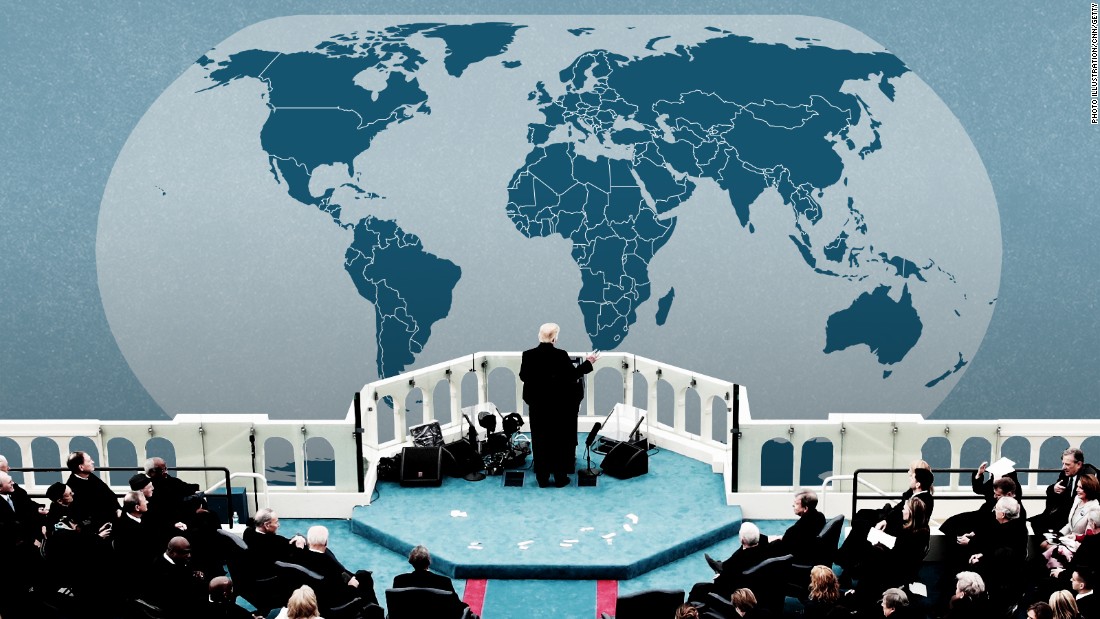As the U.S. presidential election looms, speculation grows over the geopolitical shifts that could follow a potential victory for Republican candidate Donald Trump. With polls hinting at a slim lead for Trump, observers are asking how a Republican administration might reconfigure American foreign policy and impact its relations in Asia and beyond. In contrast to the more predictable trajectory of a Kamala Harris administration, which may continue the current Biden-led policies, a Trump win would likely introduce new priorities and strategies, particularly concerning the Indo-Pacific region, the Middle East, and U.S.-Russia relations. Trump has made clear his commitment to strengthening ties with India, a partnership he sees as crucial in countering China’s growing influence. His campaign has emphasized supporting India on various fronts, signaling a focus on bolstering security for Indian and Hindu communities abroad, particularly amid rising communal tensions in countries like Bangladesh. Trump attributes these unrests to what he claims are destabilizing policies under the Biden administration, which he alleges may have contributed to political instability in Bangladesh. Under a new Trump administration, there might be increased diplomatic and strategic support for Prime Minister Modi’s government, particularly regarding security concerns that resonate with the Indian diaspora. Trump’s rhetoric suggests a more confrontation with entities seen as hostile to Indian interests, including certain pro-Khalistan factions, which have been a source of tension between the U.S., India, and Canada. Trump’s stance aligns with a shift in the Indian American voter base, which has traditionally favored Democrats but is now questioning the Biden administration’s alignment on these issues.

A notable area of emphasis for Trump’s foreign policy would be Bangladesh, where he has promised to support efforts to restore stability and protect minority communities. Trump has criticized the Biden administration for allegedly failing to address anti-Hindu and anti-Christian violence in Bangladesh, a priority he claims his administration would tackle head-on. By ensuring stability in Bangladesh, Trump’s policy would likely reinforce U.S.-India collaboration on regional security, as both nations share concerns over the spillover effects of instability in neighbouring countries. The Trump approach could also extend to advocating for the reinstatement of ousted Bangladeshi leader Sheikh Hasina. Trump’s support for Hasina and opposition to perceived pro-Biden figures within Bangladesh’s caretaker government suggests a willingness to intervene diplomatically in the country’s internal politics to advance U.S. interests in South Asia. Trump’s foreign policy approach has historically been a departure from conventional U.S. diplomacy. While his previous term saw moves to restrict entry from certain Muslim-majority nations and a pivot to isolationist policies, Trump insists that a renewed tenure would focus on creating what he describes as a “safer, more balanced” world. His claims that he could have prevented the Ukraine-Russia war and the Israel-Gaza conflict highlight his belief in a hands-on approach to international conflicts—an approach that some see as both high-risk and high reward. Trump’s view of the Russia-Ukraine crisis remains a focal point, as he has repeatedly stated that his return to office would prioritize de-escalation in Eastern Europe. This claim aligns with his first-term efforts to engage diplomatically with Russia, which he believes offers a unique pathway to resolve the ongoing conflict. Whether his administration would adopt a pro-Russia stance is uncertain, but a Trump presidency would undoubtedly signal a significant shift from the Biden administration’s current approach. The Indian diaspora in the United States, a community that once largely supported Biden, is now scrutinizing the administration’s policies closely. Issues like the recent allegations surrounding an Indian intelligence official’s supposed involvement in plotting against a pro-Khalistan leader in the U.S. have raised concerns about the Biden administration’s stance on India-related matters. Trump’s campaign has leveraged these grievances, painting himself as a stronger advocate for India and vowing to confront what he calls “anti-India” sentiments within American political circles. Trump’s alignment with these concerns could lead to a substantial swing in the diaspora vote in key states, adding weight to his campaign’s focus on security and protection of Indian cultural and religious sites in the U.S. If Trump emerges victorious, the implications for the global geopolitical landscape would be wide-ranging. His administration would likely prioritize a “hard power” approach, focusing on reshaping alliances in Asia and reconfiguring U.S. strategies on issues ranging from terrorism to economic policy. Trump’s rhetoric has centered on portraying the Biden administration as soft on threats that he believes compromise American interests and allies. The possibility of a Trump administration re-engaging with leaders like Modi could accelerate efforts to curb China’s economic and political ambitions, strengthening the Quad alliance between the U.S., India, Japan, and Australia. Trump’s emphasis on “law and order” might also reshape U.S. responses to insurgent groups and state-sponsored terrorism, echoing his critiques of previous administration’s handling of international crises. The prospect of Trump’s return to the White House carries significant implications for U.S. foreign policy, particularly in Asia. Whether or not he can fulfill his promises to create “better environs” remains uncertain, but his assertive stance and claims to prevent conflicts resonate with voters seeking a stronger American presence on the world stage. Ultimately, the outcome of this election will not only define America’s future domestic policies but could also reshape the broader global landscape—an outcome that, if Trump prevails, will lead to new alliances, potential re-escalations, and a distinctly recalibrated U.S. approach to global challenges.




